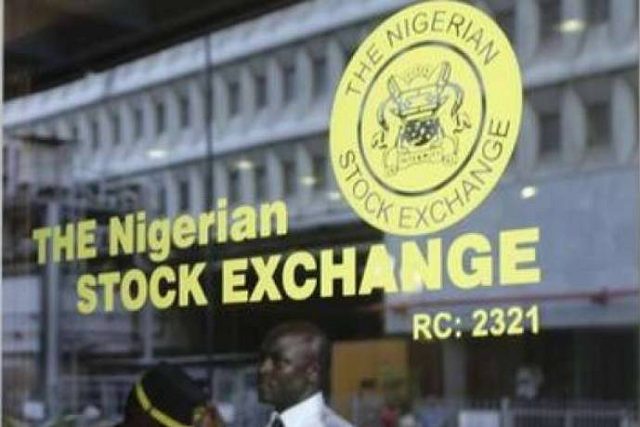Investors in the Nigerian equity market gained N1.934 trillion in October as the market recorded its best monthly gain since 2018 on the continued inflow of funds searching for real returns and positive reactions to the better-than-expected third quarter(Q3) and nine months earnings so far released.
The market capitalisation of the Nigerian Stock Exchange (NSE), which measures the total value of listed equities rose from N14.024 trillion at the end of September to N15.958 trillion at the end of October, indicating a growth of N1.934 trillion or 13.79 percent.
Similarly, the NSE All-Share Index (ASI), the benchmark index, climbed 13.8 percent from 26,831.76 to close at 30,530.69, compared to 5.9 percent growth recorded in September.
The performance in October has pushed the year-to-date growth of the market to 13.7 percent, making the Nigerian equities market the second-best performing among the 93 major global markets tracked by Bloomberg.
The NSE All-Share Index came second behind Denmark’s OMX Copenhagen 20 Index that led with 17.13 percent.
After slipping into the negative territory in the first (Q1) quarter, the Nigerian equity market began a recovery in the second quarter (Q2), which it sustained in the third quarter (Q3).
And beyond the expectations of many stakeholders, the market ended the first month of the fourth quarter (Q4) with the highest monthly growth that was last seen in February 2018.
Out of the 20 trading sessions in October, the market was up in 13 sessions and down in just seven trading days.
Besides, the value of trading increased significantly as investors traded 8.97 billion shares in 106,626 deals as against 5.95 billion shares traded in September.
The positive performance stemmed from continued activities of bargain hunters, who have swooped on the stock market in search of higher yields in the face of increasingly negative real returns in the fixed income market and absence of attractive alternative investment options.
The low yields in the fixed income market are reflected in the recently listed FG bond for 2022 and 2023 rates, which were below 4.0 per cent, while treasury bill rate crashed further at the last auction to below 1.0 per cent in an environment where inflation rate stood at 13.7 per cent as at the end of September.
According to the Chief Research Officer, Investdata Consulting Limited, Mr. Ambrose Omordion, the low yield environment and other factors triggered buying interest in the market despite the seeming disconnection with economic realities to sustain the four consecutive months of a bullish run.
He said the positive close on bullish sentiment, successfully defied the social unrest tension of EndSARS that led to the shooting of protesters and destruction of public and private property worth trillions of naira, in the midst of high liquidity and the influx of mixed corporate earnings reports released over the past two weeks.
Omordion explained that it is a known fact that stock markets, as leading indicators of economic activities, are forward-looking, such that current share prices reflect future earnings potential or profitability of quoted companies.
“Since stock prices reflect expectations about profitability, and profitability is directly linked to economic activity, fluctuations in stock prices are thought to show the direction of any economy. But our market since April has rallied on liquidity and sentiments ignoring economic fundamental and at the same time pointing to economic recovery as quoted companies’ numbers remain resilient in the midst of negative macroeconomic indicators,” he stated.
The financial and investment analysts said the positive investor responses to the mixed numbers as at release dates, which has pushed many equities on the exchange to a new 52-week high revealed high liquidity and confidence.
“The possibility of prices rallying further from here is high, amidst portfolio reshuffling on the strength of the Q3 numbers, just as investors would be assured of reward in the form of dividends when the full-year score-cards begin to flow into the market in the early days of 2021 despite the possibility of a dividend cut.
“It is expected that discerning investors and traders would take advantage of the prevailing relative low stock prices, year-end season and cycle to grow their income, ahead of major earnings season in the first quarter of 2021,” he added.
Omordion said the undervalued state of most quoted companies, their strong fundamentals and the seemingly high dividend yields may attract more inflows to the Nigerian stock market as many equities are selling above their 52-week and three-year lows, offering higher upside potential.
Before now the Chief Executive Officer of the NSE, Mr. Oscar Onyema, had linked the stock market rally to CBN’s restriction of domestic investors from participating in its open market operations (OMO) as well as the interest rate cut.
He said investors are always in search of higher returns on investments, adding that CBN’s policies have made the stock market attractive to investors.
He said: “I must say that some of the policy changes include the CBN policy that domestic institutional investors should stop participating in the OMO market. That has driven significant funds into the Nigerian
Treasury Bills (NTB) market and some of those funds have found their way into the equities market. We have also seen a cut in interest rate. That was a significant move in support of equities as an asset class. What investors tend to do is to look for yield.”
According to Onyema, since the Nigerian economy has shifted into a negative real interest rate environment, investors are now in search of investments that would give them higher yields and returns.
“Given the record dividend yield available in the Nigerian market and given the strong fundamentals of a number of companies that are listed on the exchange, it makes sense that as investors try to rebalance their portfolio, they would look at equities,” he stated.
Source: THISDAY












